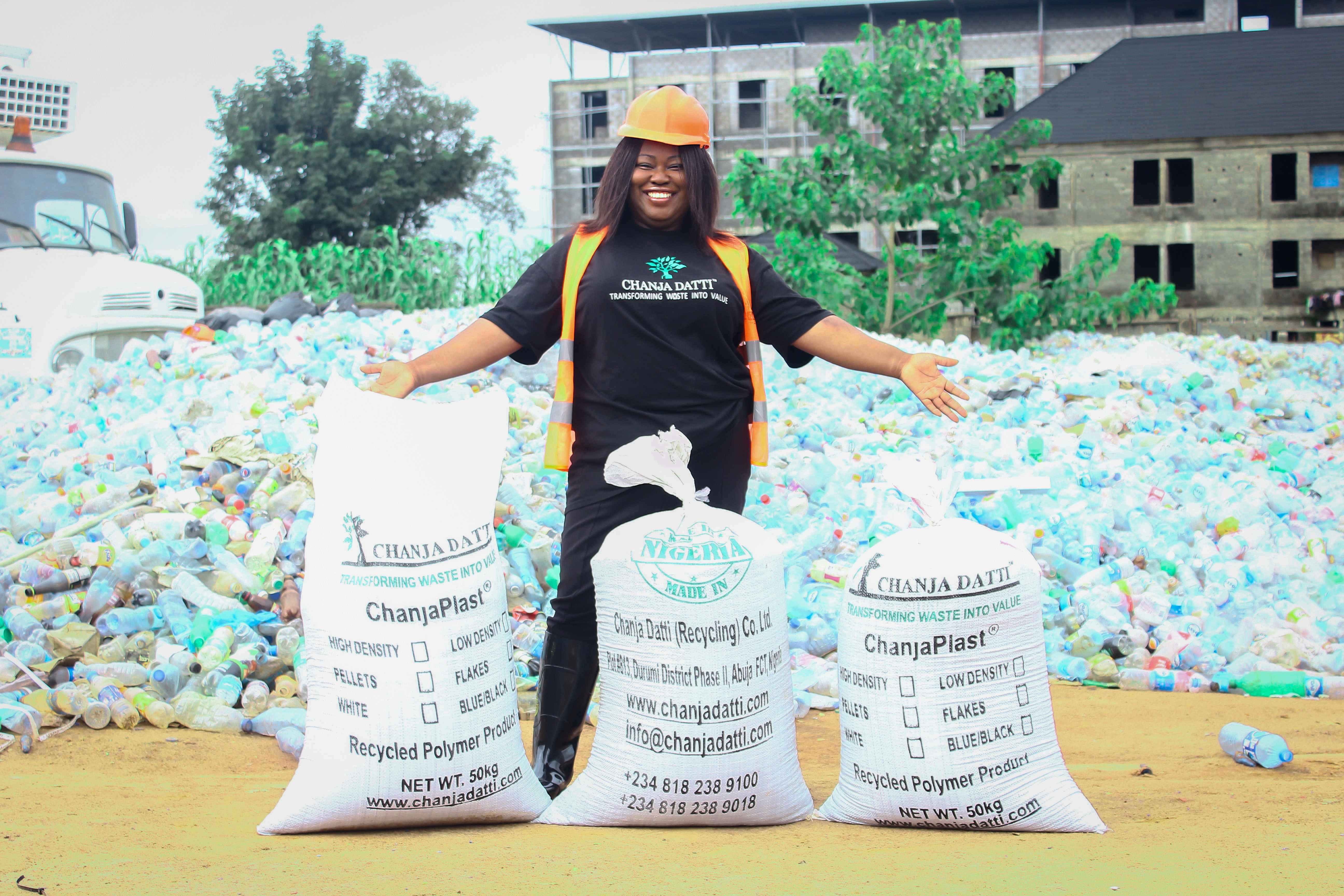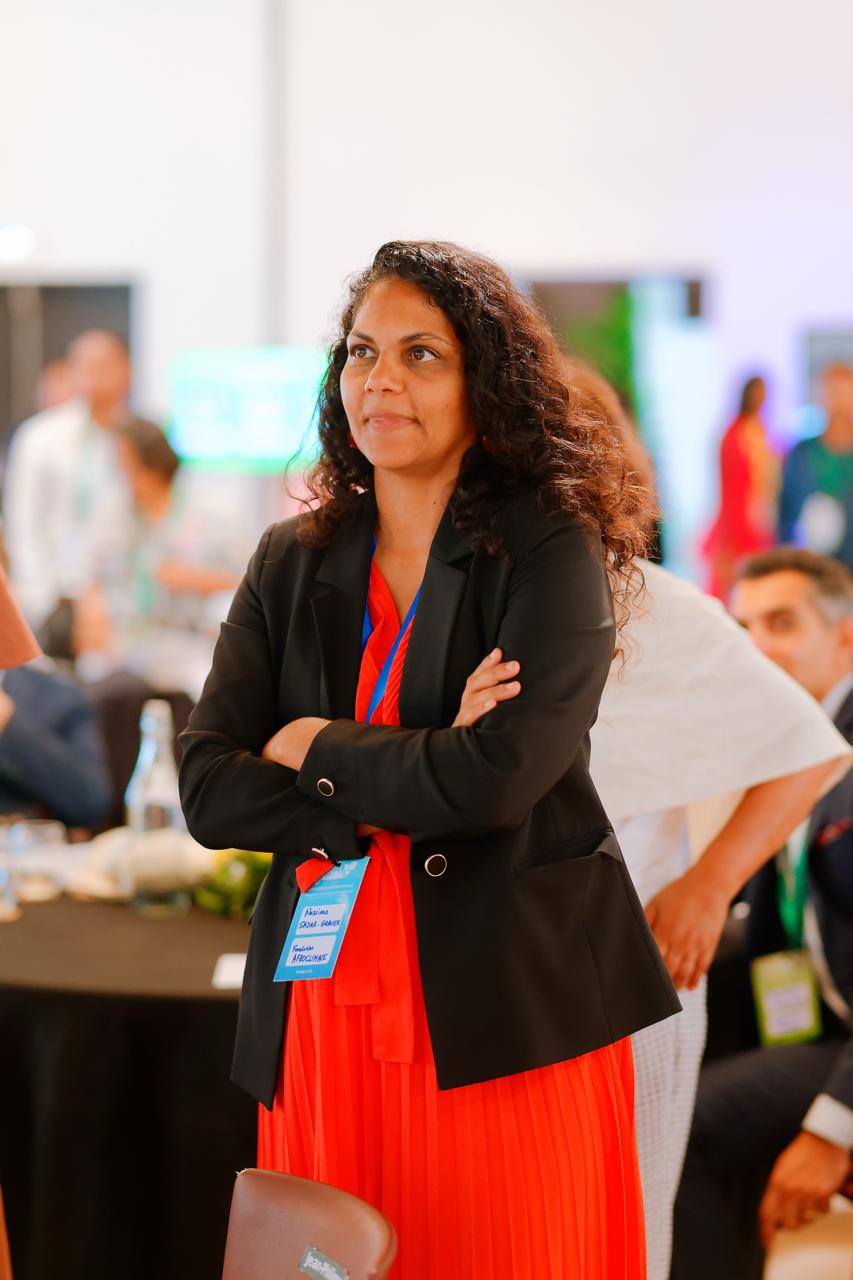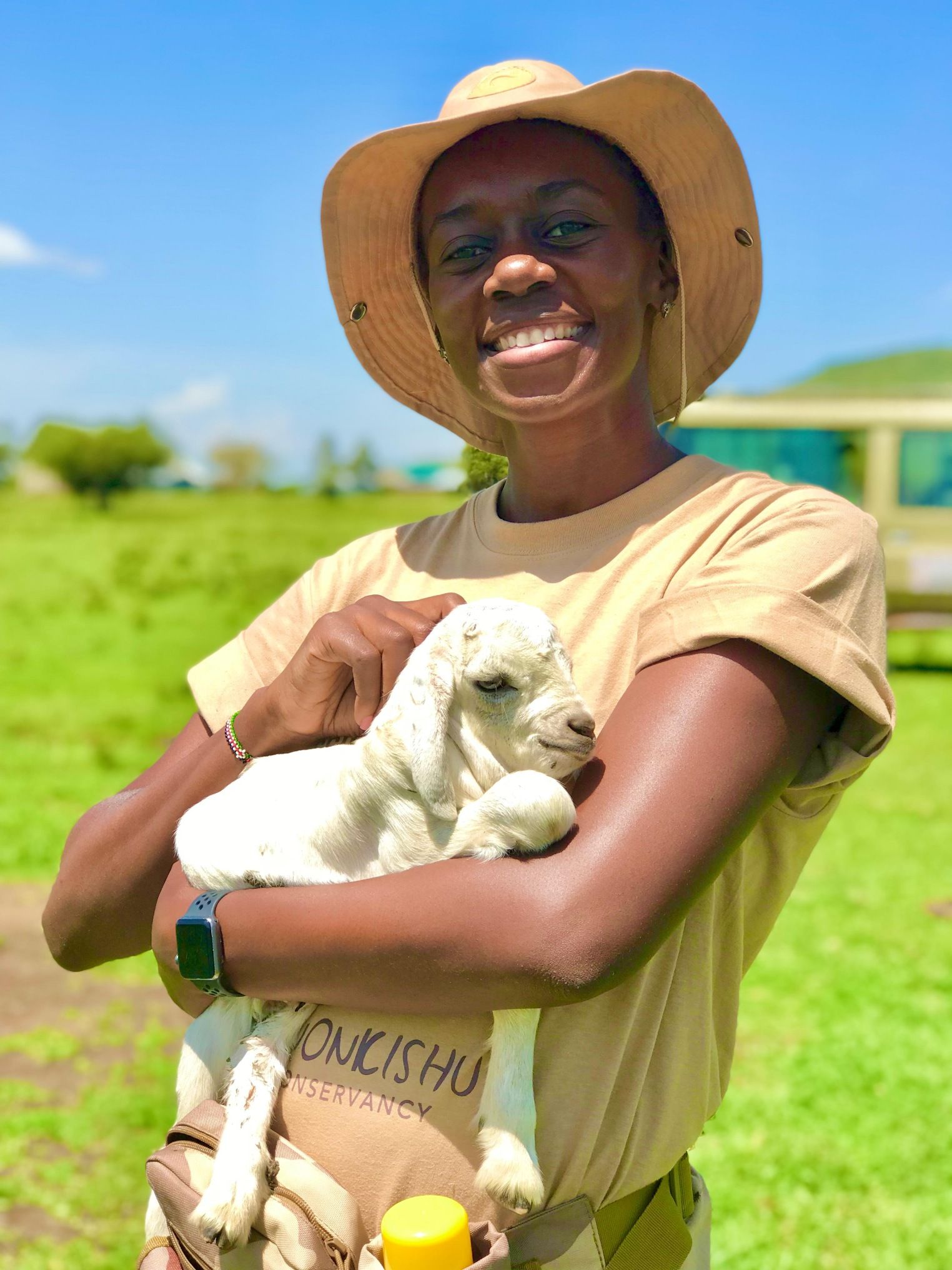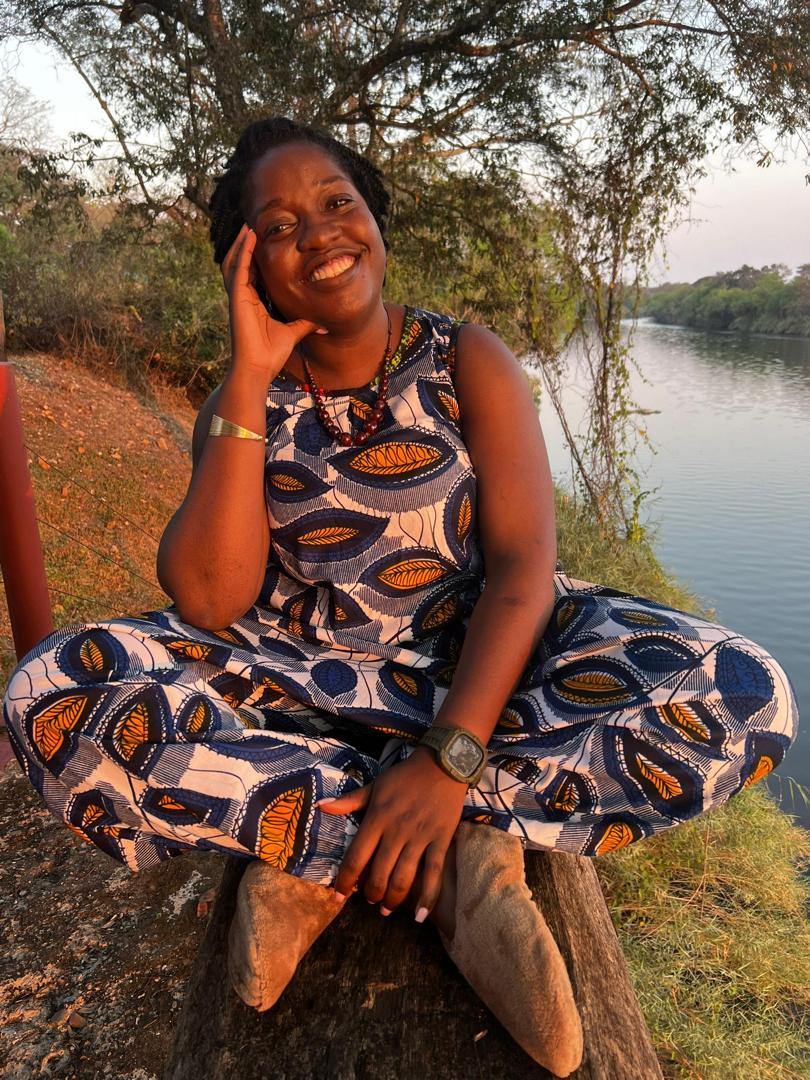When it comes to environmental conservation work, there must be more acknowledgement of what the local people have to bring to the table.
Olufunto Boroffice refers to herself as a problem solver. And that was her precise mission when she left a distinguished career in the US to go back to her home country, Nigeria, and start afresh.
In 2015, she founded Chanja Datti which has grown to become one of Nigeria's leading waste collection and recycling social enterprises.
The Women for Environment 2022 Fellow shares insights from her journey with Damaris Agweyu.

Funto, you had built a wildly successful career in the US. What made you decide to leave it behind and return to your home country, Nigeria?
I had been working for General Electric for 12 years and had grown in ranks to become a vice president. When I looked around, I saw many brilliant people like me who were doing phenomenally well. But what this meant was that the brilliance would, more often than not, stay in the US.
I started thinking about how I could share, with my continent, the knowledge I had gained over my 18-plus years in the US. I took a one-month leave of absence from work to go to Nigeria and test the waters. I ended up staying for six months. This visit solidified my decision. Africa was where I needed to be.
People on this continent are incredibly gifted, and it pains me that they have not reached their full potential. Our structures and systems are largely to blame because they do not provide an enabling environment for us to become the best version of ourselves. I felt I needed to do something to move the needle on some of the issues we face.
Essentially, you came back to serve your country.
Yes. I come from a background of privilege. And all of the incredible things I had achieved in my career were, to a certain extent, the result of the opportunities that my parents had afforded me in life. Giving back has never been difficult for me because I come from a long line of teachers, university professors and public servants. The need to serve was something I knew I would fulfil one day. I believe to whom much is given, much is expected—and in my case, much has been given.
It's so important to talk about privilege—and yet so hard.
I say I had a privileged background, but when I was in the US, I was a triple minority—a black woman with an accent and a difficult name to pronounce. These factors, in themselves, meant I was less privileged than many of my counterparts. But I'm grateful because this allowed me to learn a few things. Firstly, I schooled in the Northeast, which is a predominantly white region. If I wanted to excel, I needed to hone my influencing skills. Secondly, I had to outwork everyone on the job because I knew what I was up against.
Today, I rest confident in the knowledge that nobody is better than I am. Your background and access to funding might give you some level of privilege, but when it comes to expertise in my field, I am on par with the best.
I never want to use the word victim. I have developed coping mechanisms to manage complex scenarios. For instance, when I landed my first job in Nigeria, there were instances when older male colleagues would want to date me. It was never a reason to start a war. I just learned to be smart about it. If I had a meeting with a man that I felt had inappropriate tendencies, I would find a trusted male colleague, give him the backstory and ask him to accompany me to the meeting.
Over time, I have developed the confidence to propel me forward because I'm constantly paying my dues, growing myself and leveraging my competitive advantage.
What made you settle on the business of waste recycling in Nigeria?
Two things concerned me every time I came home to visit. The first was the amount of waste I saw on our streets and in our waterways. The second was the number of people, some old enough to be my grandparents, who would genuflect before me, asking for money. This was not the Nigeria I remembered, a Nigeria where we were a proud people who did not beg anyone for anything.
When I decided I was coming back, I was very clear that I wanted to do something that would create jobs. And I wanted to work in a sector where I could impact the community.
My first job was in the Ministry of Energy, where I worked as a technical advisor to two ministers. I was in charge of investments and donor relations. We had a lot of foreign companies coming to Nigeria, looking to turn waste into energy. They would get frustrated because they weren't getting the kind of waste they needed—sorted and separated waste.
And this got me thinking. Why were we not sensitising enough people to start sorting their waste at its source? Could we incentivise people to do this? It worked in the US, where I would collect my bottles, return them and get enough money to buy doughnuts while grocery shopping. Could it not work in Nigeria too? Wasn't this also an opportunity to create jobs? These questions led to the formation of Chanja Datti, which, in Hausa, means "change dirt".
I wanted a name that reflected an indigenous company. And even though I am Yoruba, I chose a Hausa name because the company was birthed in the northern part of Nigeria, and I wanted to pay homage to this region.
Has it panned out the way you hoped?
It's greater than anything I would have imagined. Since inception, we've created over 200 green jobs, mopped up over 5.5 million kilograms of recyclable waste from the environment, raised awareness within communities and developed innovative solutions that have had an immense impact on our society and environment. And this is just the tip of the iceberg.
Would you consider yourself an environmentalist or entrepreneur?
I flex between both, depending on the audience. But I never lose sight of the fact that one helps the other. One of the things that have been evident on my journey is you cannot do all these great things for the environment if you don't have funds. It's great to access grants, but you must also create a sustainable enterprise that allows you to keep going if those funds dry up. I tell the complete story using the three Ps plus one; People, Planet and Profit. The Partnership aspect is the plus one.
What narrative would you want to change about the African continent?
We are not the dark continent.
There is a lot of ignorance about Africa out there. I remember having colleagues in the US who wanted to know whether I lived in a hut and if I woke up every morning to be greeted by tigers roaming around my compound. These were educated people working in high-value organisations. I fault them for their ignorance, but the truth is, their media plays a significant role in fueling this ignorance.
We need to change the narrative that not every African is poor and starving. Not every African child has mucus running down their noses and flies swarming around them. Our systems may be broken, but I'll tell you this: we are no more corrupt than they are. They have their lobbyists. And what is the job of a lobbyist? I don't want to get too political, but a lobbyist influences legislators on behalf of individuals and organisations. So let's call a spade a spade; it's a form is corruption. They just package it in a more palatable way.
And because our systems and processes don't work smoothly, we're always getting handouts. But I say give us trade, not aid. That's why entrepreneurship has been so important to me. What Africa needs is a hand up, not a handout. If you give me X and I give you Y, there is more balance in our relationship.
What narrative would you want to change regarding the work you do?
White is not always right. When it comes to environmental conservation work, there must be more acknowledgement of what the local people have to bring to the table.
What misconception did you have about leadership that was shattered once you became a leader?
When I was growing up, I thought a leader was someone who sat around giving orders and drinking iced coffee. I'm learning that is the furthest thing from the truth. If you are going to be an effective leader, you have to commit to the work and prepare for many sleepless nights.
What new insights has the WE Africa journey revealed for you?
This journey has dismantled the notion that women don't support each other and are in constant competition. I have developed a sisterhood that has helped me forgive myself for my past mistakes and encouraged me to continue being the best leader I can be.
What do you struggle with most?
I am very confident in my abilities, and I'm grateful to my family and extended support system for enabling this. However, I struggle with being an African woman living in Africa and not having met some of what are considered important milestones. I'm over 40 and single. There is this notion that I should be married with children. Sometimes I don't get the respect I deserve because I haven't met these milestones. Should I have tempered my career ambitions with modesty? Will my choices have been worth it? These are some of the questions I struggle to answer.
***
This interview is part of a series profiling the stories of the 2022 WE Africa leadership programme fellows, African women in the environmental conservation sector who are showing up with a strong back, soft front, and wild heart.





